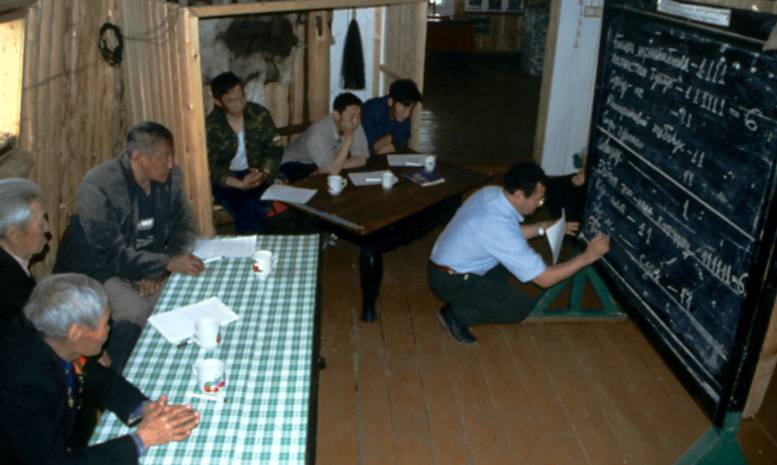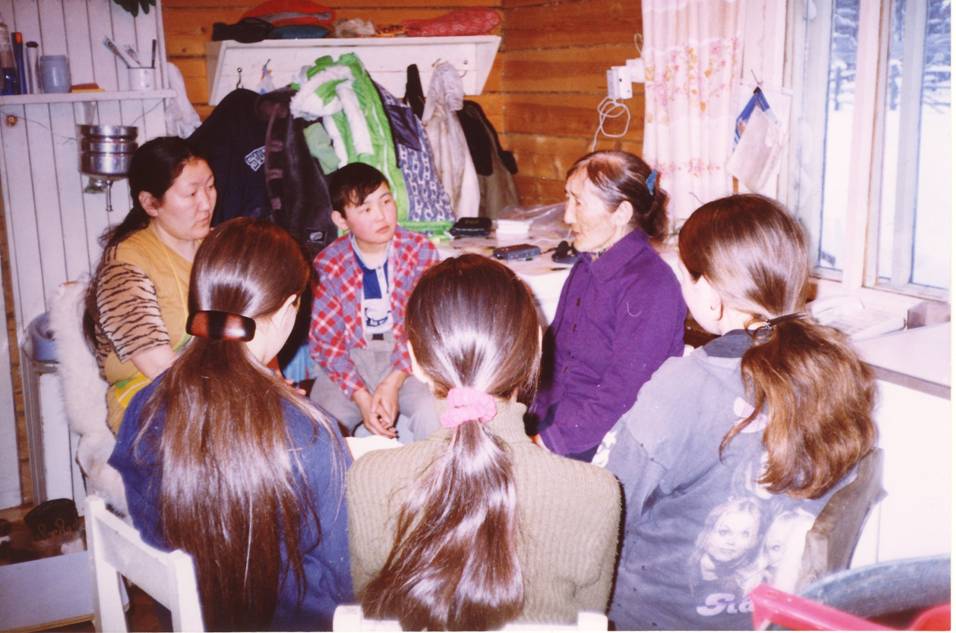My Investigating Sustainability Project
Based on my dissertation findings and my growing interest in working with issues of sustainability in native communities, from 2003-2006 I was funded and acted as principal investigator for a $90,000 project through the National Science Foundation (OPP #0532993) analyzing village-level economic trends and state-level policy initiatives, entitled, “Investigating the Economic and Environmental Resilience of Viliui Sakha Villages: Building Capacity, Assessing Sustainability, Gaining Knowledge.” Fieldwork was ongoing in four Viliui Sakha villages. I worked with a research team and the communities at large to collect and analyze data. Additionally, our team collaborated with local community members and in-country research specialists for summary analyses. The primary research objective of the project was the co-production of knowledge to gauge the local resilience of rural post-Soviet agropastoralist native communities in the face of economic and environmental change. To these ends, the project had three interdependent research areas, each of which investigates different questions: 1) How do local populations define “sustainability” based on community goals? 2) To what extent can locally-determined definitions of sustainability be operationalized for household and community-level adaptation to economic and environmental change? 3) What aspects of local indigenous knowledge support household and community-level adaptation by upholding locally-determined definitions of sustainability? The three areas also interacted to produce the overall objectives of this study: a) a model of household and community-level sustainability based on community goals in the context of economic and environmental change; b) policy recommendations based on that model, and c) transferable materials to replicate the research project methods and share the findings.
Through focus groups and interviews we found that post-Soviet Viliui Sakha indigenous communities of northeastern Siberia, Russia define sustainability as the building of local diversified economies, communities, and health via strong local leadership, a shared vision to work toward common goals, the reinstatement of local knowledge, and rights to land and resources. Through surveys and follow-up interviews we found that inhabitants are limited in their ability to realize those definitions of sustainability due to 1) the amount of time taken up to provide subsistence for their household; 2) the lack of infrastructure and training to develop local economies; 3) the tendency for inhabitants to work closely within their kin groups but not on a larger community scale; 4) the challenges they face due to environmental degradation and the increasing effects of climate change, both which make subsistence increasingly time consuming; 5) the lack of altruistic leadership to facilitate community development. Our research team found that although local communities express a desire for the control of their own destiny via a localized economy, community empowerment, health and environmental protection, and land and resource rights, there are substantial state-level hurdles impeding such desires. Another major finding was our consultants’ unanimous concern about how the local effects of global climate change threaten their subsistence survival. Through the elder knowledge part of the project we learned that there is indeed a vast resource of knowledge that relates to community definitions of sustainability and that knowledge can be successfully documented and used within the communities via youth-elder oral history efforts. My recent articles in Arctic [pdf] and Arctic Anthropology [pdf] provide explanation and analysis of these findings. I have also recently published a monograph entitled Cows, Kin and Globalization: An Ethnography of Sustainability, which posits the Viliui Sakha ethnography within the larger literature of indigenous peoples and capital-intensive mining. |
Focus groups in the villages
Elder Knowledge Interview
|
Click HERE to see the cover matter of my book and use the link below to my book on the Alta Mira Press website: http://www.altamirapress.com/Catalog/SingleBook.shtml?command=Search&db=^DB/CATALOG.db&eqSKUdata=0759107408&thepassedurl=[thepassedurl]


